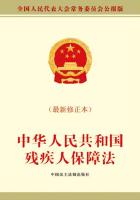In the later Empire, for example, it seems plain that social mechanism (in its proper kind and measure one of the conditions of freedom) had grown in such a way as to shackle the human mind. In order to achieve and maintain an imperial reach of control, the state had gradually been forced to take on a centralized bureaucratic structure, which left the individual and the local group no sphere of self-reliant development. Public spirit and political leadership were suppressed, and the habit of organized self-expression died out, leaving the people without group vitality and as helpless as children. They were not, in general, cowards or voluptuaries梚t seems that the decline of courage and domestic morals has been exaggerated but they had no trained and effective public capacity. Society, as Professor Dill says, had been elaborately and deliberately stereotyped.
The decline of vitality and initiative pervaded all spheres of life.
There were no inventions and little industrial or agricultural progress of any kind. Literature de-(115)-generated into rhetoric: "In the same manner," says Longinus, " as some children always remain pigmies, whose infant limbs have been too closely confined, thus our tender minds, fettered by the prejudices and habits of a just servitude, are unal~le to expand themselves, or to attain that well-proportioned greatness which we admire in the ancients, who, living under a popular government, wrote with the same freedom as they acted." [7]
The growing states of the earlier world were confronted, whether they knew it or not, with an irreconcilable opposition between freedom and expansion.
They might retain in small areas those simple and popular institutions which nearly all the great peoples started with, and to which they owed their vigor; or they could organize on a larger scale a more mechanical unity. In the first case their careers were brief, because they lacked the military force to ensure permanence in a hostile world. In the latter they incurred, by the suppression of human nature, that degeneracy which sooner or later overtook every great state of antiquity.
In some such way as this we may, perhaps, dispose of the i enumerable instances which history shows of the failure of free organization梐s in the decay of ancient and mediaeval city republics. Not only was their freedom of imperfect nature at the best, but they were too small to hold their own in a world that was necessarily, for the most part, autocratic or customary.
Freedom, though in itself a principle of strength, was on too little a scale to defend itself. " If a republic be small," said Montes-(116)-quieu, "it is destroyed by a foreign force; if it be large it is ruined by internal imperfection." [8]
But how splendid, in literature, in art, and even in | arms, were many of these failures. How well did Athens, Florence and a hundred other cities illustrate the intrinsic I strength and fecundity of that free principle to which modern conditions permit an indefinite expansion.
The present epoch, then, brings with it a larger and, potentially at least, a higher and freer consciousness. In the individual aspect of life this means that each one of us has, as a rule, a wider grasp of situations, and is thus in a position to give a wider application to his intelligence, sympathy and conscience. In proportion as he does this he ceases to be a blind agent and becomes a rational member of the whole.
Because of this more conscious relation to the larger wholes梟ations, institutions, tendencies梙e takes a more vital and personal part in them.
His self-feeling attaches itself, as its nature is, to the object of his free activity, and he tends to feel that "love of the maker for his work,"that spiritual identification of the member with the whole, which is the ideal of organization.
De Tocqueville found that in the United States there was no proletariat.
" That numerous and turbulent multitude does not exist, who regarding the law as their natural enemy look upon it with fear and distrust. It is impossible, on the contrary, not to perceive that all classes . . . are attached to it by a kind of parental affection." [9]
(117) And, notwithstanding a deep and well-grounded "social unrest,"this remains essentially true at the present day, and should be true of all real democracy. Where the state is directly and obviously founded upon the thought of the people it is impossible to get up much fundamental antagonism to it; the energies of discontent are absorbed by moderate agitation.
The extension of reach and choice favors, in the long run, not only political but every kind of opportunity and freedom. It opens to the individual a more vital, self-determined and energetic part in all phases of the whole.
At the same time, the limits of human faculty make it impossible that any one of us should actually occupy all the field of thought thus open to him. Although stimulated to greater activity than before, one must constantly select and renounce; and most of his life will still be on the plane of custom and mechanism. He is freer chiefly in that he can survey the larger whole and choose in what relations he will express himself.
Indeed, an ever-present danger of the new order is that one will not select and renounce enough, that he will swallow more than he can properly digest, and fail of the benefits of a thorough subconscious assimilation.















